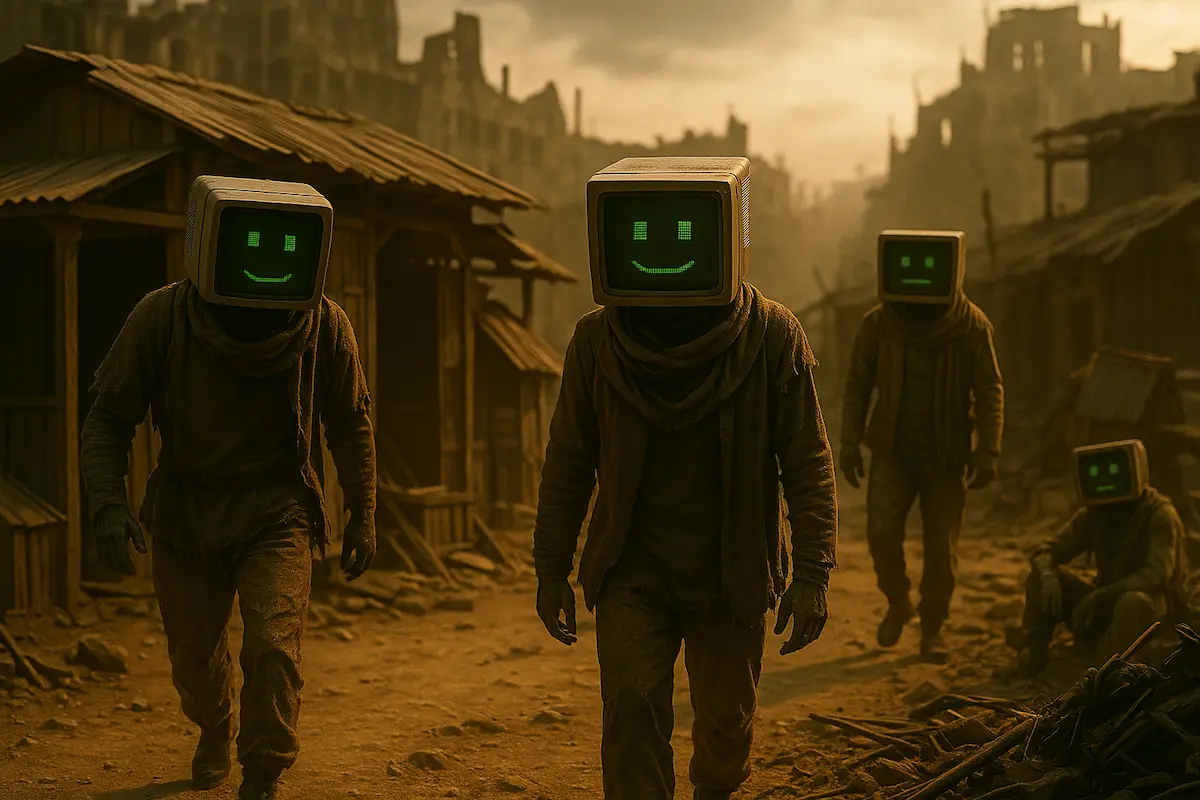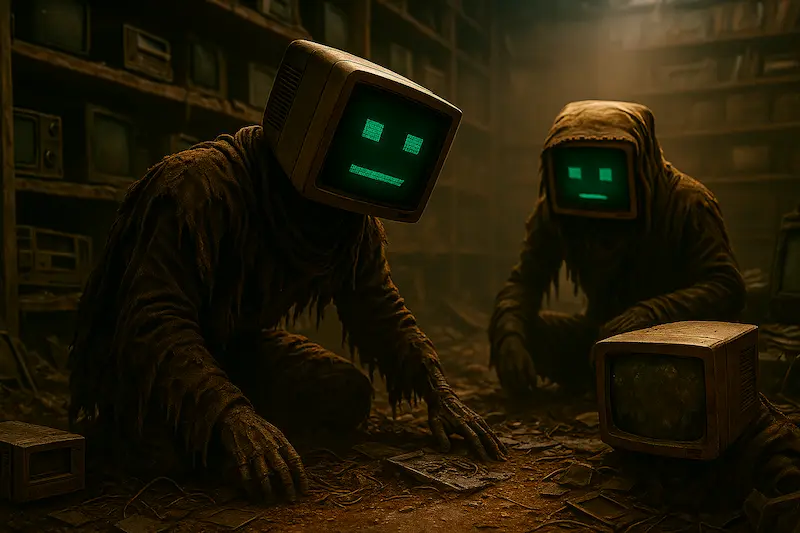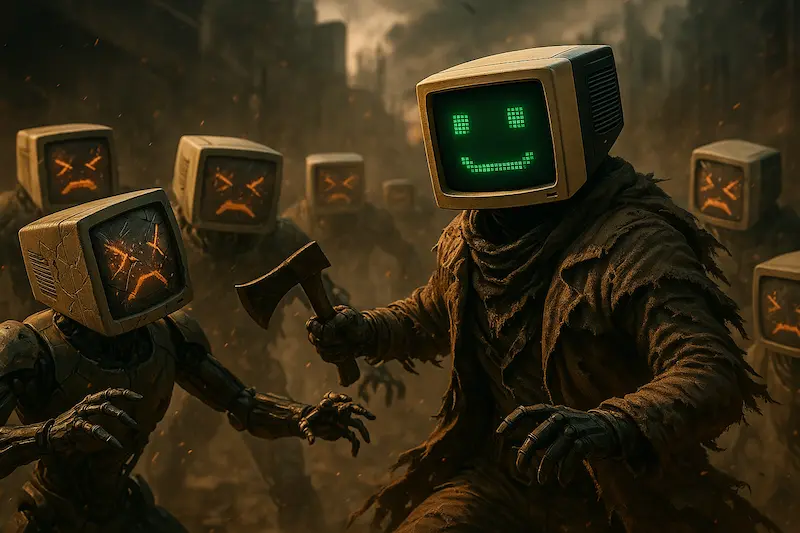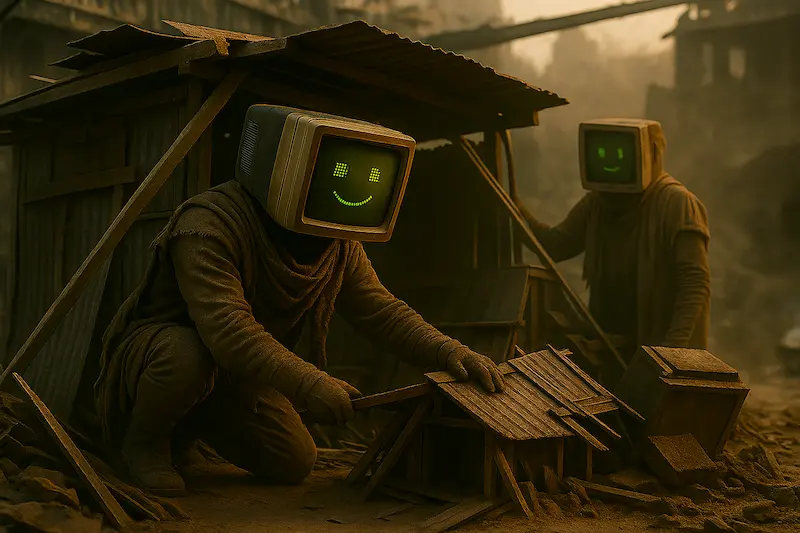
Why Gamers Will Survive the Apocalypse (and Rebuild Civilization)
Discover how video games secretly prepare players for the apocalypse. From RPG looting instincts to simulation-based city planning, this article explores the real-world survival skills gamers develop through their favorite genres — and why they might be civilization's best hope.
Let’s be honest.
When most people think about the apocalypse, they picture bunkers, canned goods, and that one guy in every town who already owns a crossbow for reasons no one questions. But what if the real heroes of the end times aren’t survivalists or doomsday preppers, what if it’s the people who’ve been training for this since childhood, controller in hand?
Yes, I’m talking about gamers.
Before you scoff, consider this: gamers, especially those raised on a steady diet of resource micromanagement, tactical decision-making, and fictional chaos, might be uniquely prepared for not only surviving the end of the world, but navigating it with finesse. And no, I don’t mean pressing “X” to crouch behind rubble while the mutant horde passes, I mean real skills, real instincts, honed in the virtual trenches.
Let’s walk through some apocalyptic scenarios and examine how different genres of video games may teach survival skills that translate surprisingly well to real life.

1. Nuclear Fallout? Send in the RPG Hoarders
I’ll go ahead and admit it: I’m the kind of RPG player who can’t walk past a single crate without opening it. I’ve hauled around hundreds of pounds of scrap metal in Fallout, just in case I might need one broken vacuum tube for a quest 30 hours later. My inventory is a mess, but I know exactly where everything is. That’s not compulsive behavior that’s survival.
RPGs train us to loot strategically, evaluate risk (“Is this alleyway worth checking for stimpaks?”) and maximize utility from junk. It’s no stretch to imagine a veteran Fallout or Elder Scrolls player turning an abandoned gas station into a viable safehouse using only a wrench, a rusty lunchbox, and some expired glue.
Key transferable skills:
- Scavenging and inventory management
- Bartering and negotiation (thanks, Skyrim speech tree)
- Navigation without GPS (read: mini-maps and fast travel points)
- Understanding post-apocalyptic RPG mechanics for real-world survival
2. Post-Technological Collapse? RTS and Sim Players Got This
If the power grid goes down and civilization as we know it crumbles, don’t look to the mayor or your local influencer. Look for the person who can manage 47 different production lines in Factorio while fending off alien bugs.
Gamers who grew up playing SimCity or Age of Empires understand infrastructure, resource allocation, and long-term planning better than most people with actual business degrees. We already think in build orders and efficiency cycles. Need a sustainable water system? Talk to someone who optimized irrigation in Banished.
Personally, I credit SimCity for helping me understand how utilities connect, why you want housing near commercial zones but not too close to industrial pollution, and what happens when you cut police funding during a disaster (hint: not good).
Key transferable skills:
- Urban planning and resource efficiency
- Population management
- Disaster recovery and strategic rebuilding
- Simulation game experience in rebuilding collapsed societies

3. Zombie Apocalypse? Let the FPS and Survival Horror Players Take Point
You know who’s oddly calm when things go wrong? The person who’s spent 60+ hours managing dwindling ammo in Resident Evil or clearing buildings in The Last of Us. Survival horror games do more than provide jump scares, they wire players to stay alert, conserve resources, and make decisions under pressure.
Meanwhile, tactical shooters like Left 4 Dead train gamers in team roles, situational awareness, and the kind of reaction time that could mean the difference between escaping a horde or becoming lunch.
Key transferable skills:
- Room-clearing protocols
- Managing panic and staying focused under stress
- Recognizing environmental cues (red barrels = good things happen)
- Decision-making and combat training in zombie survival simulations
4. Puzzles, Ruins, and Ancient Mysteries? Let the Puzzle Gamers In First
There’s something uniquely valuable about puzzle-solving under pressure. I grew up playing The Incredible Machine, a game about Rube Goldberg contraptions that taught me not just cause and effect, but lateral thinking. That problem-solving muscle gets flexed every time you hit a puzzle door in Tomb Raider or get trapped in a Portal test chamber.
These players know how to think in systems, find patterns, and decode problems with minimal information. If some ancient alien lock is blocking your next move, don’t waste time brute-forcing it, just find the person who used to rewire mouse traps and conveyor belts for fun.
Key transferable skills:
- Pattern recognition
- Creative logic under constraint
- System-based problem-solving
- Critical thinking developed through puzzle and problem-solving games

5. Everything’s On Fire? The Sandbox Gamers Have Been Waiting for This
When all else fails, the sandbox gamers will thrive. These are the Minecraft veterans, the DayZ nomads, the Terraria tinkerers. Give them a procedural world and some tools, and they will build you a fortress with a moat, a farm, and a defense turret from scrap.
Their strength lies in adaptability and improvisation. These are the gamers who experiment, rebuild, and iterate, not because they have to, but because they enjoy it.
Key transferable skills:
- Rapid prototyping
- Resource prioritization
- Turning chaos into creative opportunity
- Sandbox survival training through open-world crafting games
So Who Survives?
If the world ends tomorrow, I’m betting on the weird, obsessed, endlessly curious people who know how to pick locks, decode clues, rebuild from ash, and hoard expired toothpaste like it’s currency.
We, the gamers, may not have the biggest muscles, the fastest cars, or the fanciest bunkers, but we do have something better: an instinctive understanding that every situation is a system to be understood, manipulated, and ultimately mastered.
Because when you’ve spent hundreds of hours looting every last broom closet in a post-apocalyptic grocery store, rebuilding civilization just feels like the next logical quest for gamers trained in apocalypse preparedness through virtual worlds.